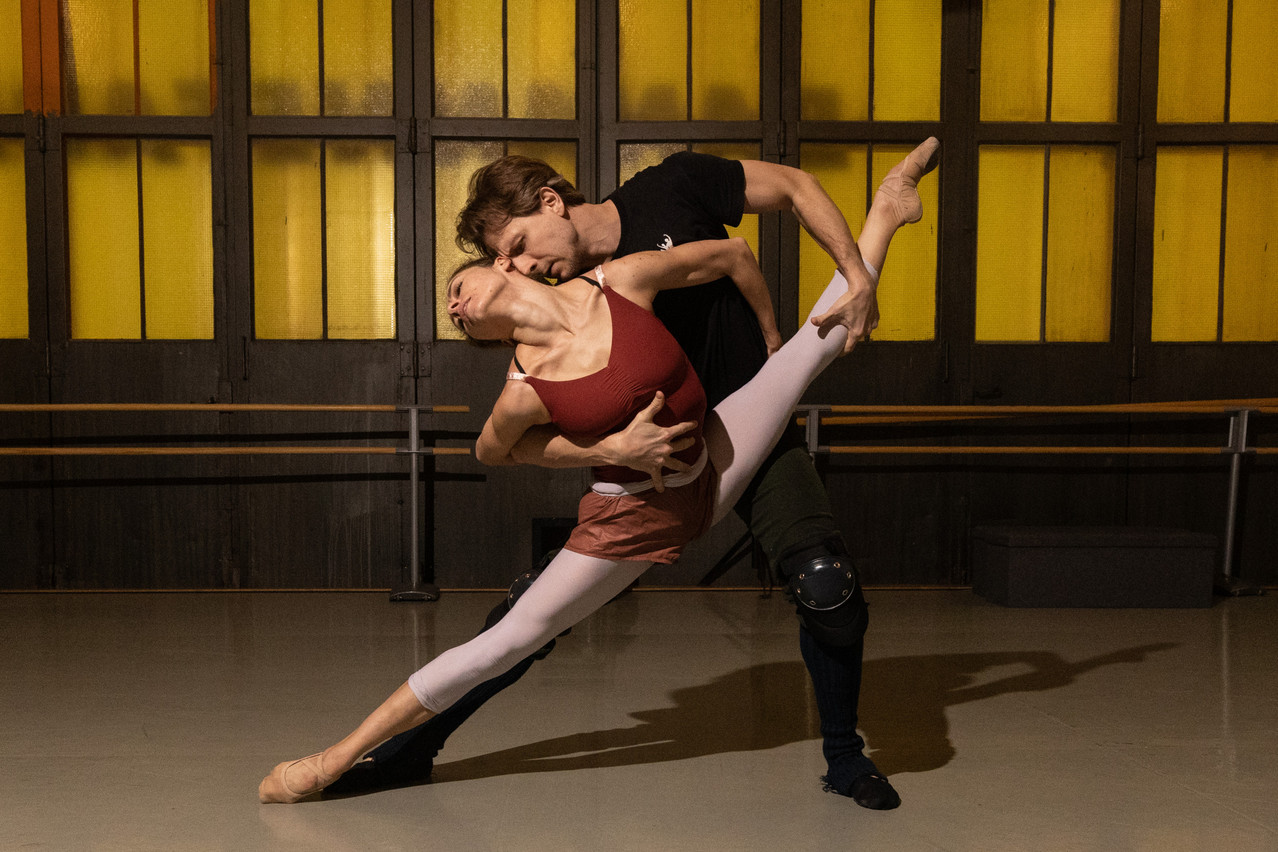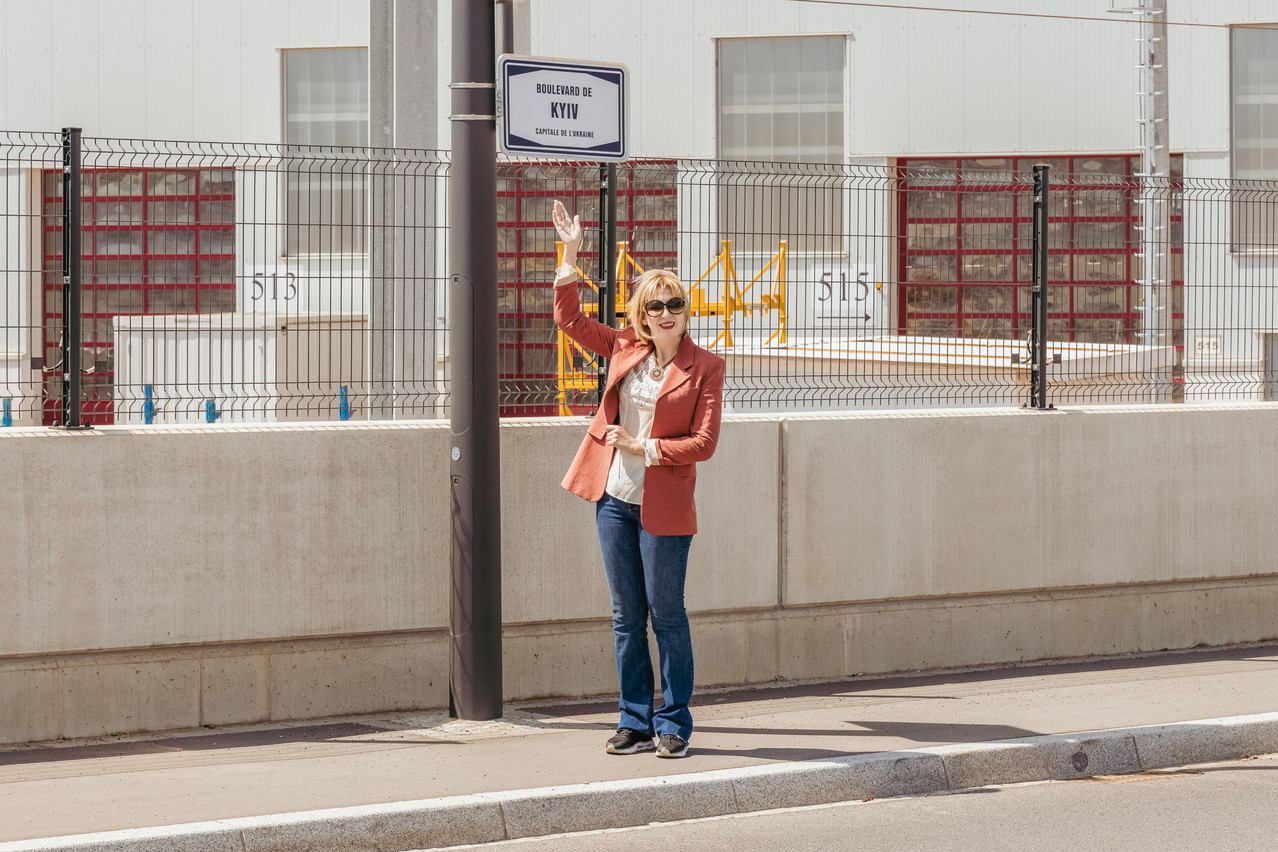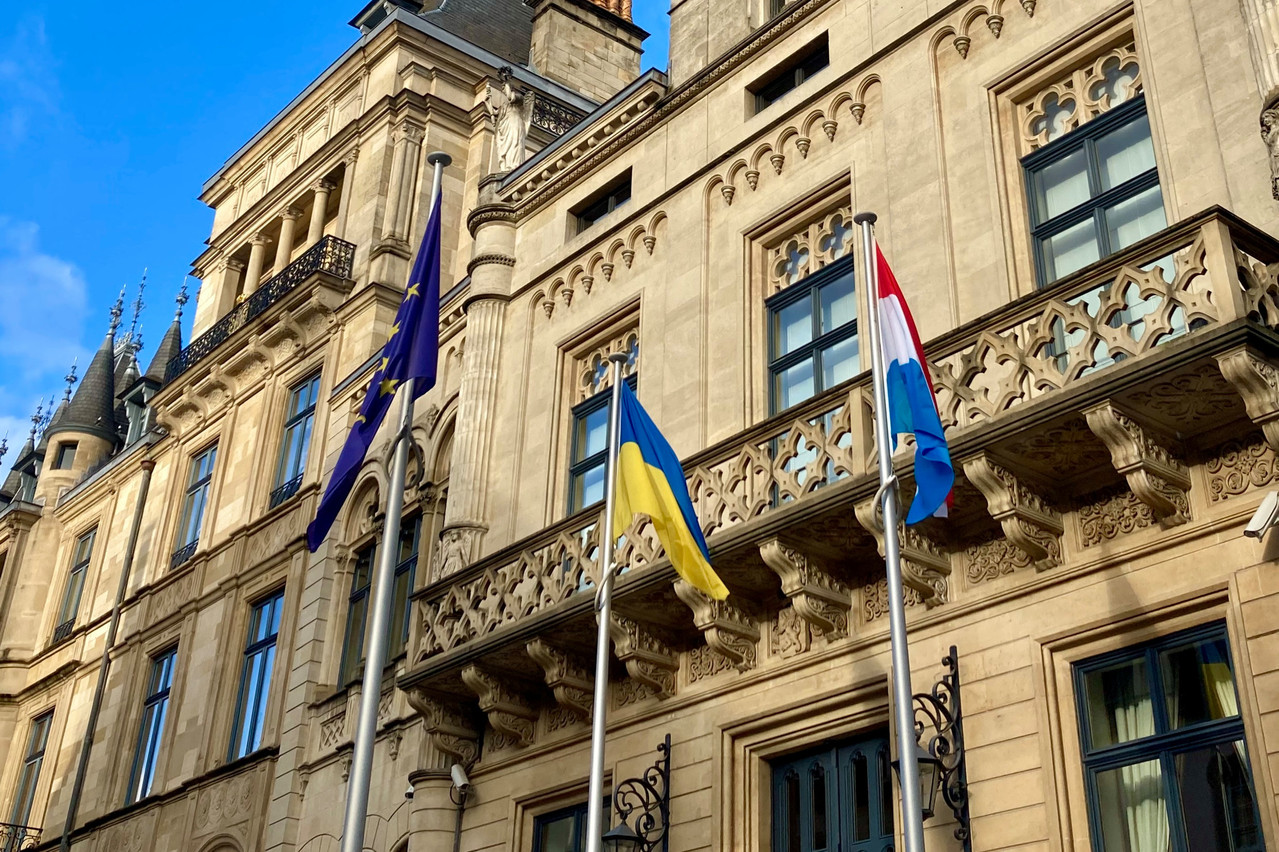It’s been nearly two years since Russia’s full-scale invasion of Ukraine began, and I fear that fatigue is starting to set in amongst people in Europe and the US. But we can’t let boredom or frustration decrease our aid and support for Ukraine as they continue to defend their country against Russia’s aggression. Here’s a recap of the support that Luxembourg has been a part of this past year.
Sanctions
The EU on 18 December adopted its against Russia. “We remain steadfast in our commitment to Ukraine and will continue to support its fight for freedom and sovereignty,” said Josep Borrell, high representative for foreign affairs and security policy in a press release.
The reason for all these sanctions packages? “To disrupt the Russian war machine,” Alberto Fernández-Díez, head of the trade and economic section of the EU delegation to Ukraine, told the audience during an .
And are those sanctions working? Yes, they are, said Borrell in a in August. They’ve limited Moscow’s options, caused financial strain, cut Russia’s access to key markets and degraded the country’s industrial and technological capacity. “To stop the war, we need to stay the course,” wrote Borrell.
Role of Luxembourg
Luxembourg, small though it may be, has continued to be a staunch supporter of Ukraine in 2023. And apart from its contribution though the European Union (such as through the to support the country’s recovery, reconstruction and modernisation), from a financial standpoint, Luxembourg has a role to play in the reconstruction of Ukraine as well.
In ahead of the Luxembourg Private Equity & Venture Capital Association’s Insights conference in October, Kolodyuk referred to a speech made by the US special envoy on economic development Penny Pritzker, saying that investing in Ukraine cannot--and should not--wait for the post-war period. It’s time to invest in Ukraine: now. “The majority of the opportunities are available now,” he told Delano. “You don’t have to wait for post-war.”
And as for why investors in Luxembourg should look towards Ukrainian companies, Kolodyuk highlighted that Ukraine is a “very sizeable” investment opportunity, that Ukraine has seen seven unicorns in the last nine years (with many more in the pipeline) and the importance of investing early to benefit from first-mover advantages.
At a and hosted at Arendt in June, experts talked about different investment funds, Luxembourg securitisation law and how other elements of the grand duchy’s investment fund “toolbox” can help Ukraine recover and rebuild. Various sectors were evoked during the conference--from agriculture to energy infrastructure. “The green transition is inevitable for Ukraine in terms of the fact that a lot of damage has been done to the old energy facilities, plus the dependence on Russian energy has to stop,” noted Valeriia Kotsur, one of the conference organisers. “So we need to transit to green, we need to stick to the [EU’s] Green Deal, and with green investments. This is where a lot of investors are looking to do things.”
Speaking of decreasing dependence on Russian gas, Luxembourg (compared to the 2017-2022 reference period), said the energy ministry. This followed a and . This decrease in gas consumption goes further than the voluntary gas demand reduction target of 15% established by the EU last year after Russia’s full-scale invasion of Ukraine. Less demand for gas, as well as filling gas storage facilities ahead of winter, have helped guarantee the security of the EU’s energy supply.
Some of Delano’s coverage over the last year
In February 2023, Delano marked the one-year point of Russia’s full-scale war against Ukraine with a series of articles focusing on Ukrainians in Luxembourg.
Three people told Delano about their since the start of Russia’s invasion; ballet dancers talked about their ; the president of the Lukraine association Nicolas Zharov discussed ; Russian citizens living in Luxembourg .
Delano spent a morning with Radio Ara to , from a and a for schoolchildren in Ukraine to a ; Nataliia Anoshyna, Ukraine’s chargée d’affaires to Belgium and Luxembourg talked to Delano’s sister publication Paperjam, .

International ballet dancers, including several from Ukraine, put on a neoclassical performance of Carmen in Luxembourg earlier this year. Photo: Guy Wolff/Maison Moderne
Also in February 2023, just before the one-year mark of Russia’s full-scale invasion, then-foreign minister Jean Asselborn (LSAP) told Delano during an in-depth interview: “.” ,” said the European Commission’s representative in Luxembourg, Anne Calteux, during a press conference on 24 February 2023.
In March, the Ukrainescht Haus Stroossen, or the Ukrainian House in Strassen, ; in April, the foreign ministry announced that Ukrainians living in Luxembourg under the temporary protection mechanism if they had found a job.
Evgenia Paliy, president of the Luxembourg-Ukraine Chamber of Commerce (LUCC), was featured in Delano’s annual Expat Guide this summer, . “It’s important, and we feel extremely grateful to Luxembourg for the opportunity to have this boulevard devoted to the nation that is now fighting the aggression, terror, and fighting for the whole of Europe,” she told Delano.

Evgenia Paliy said that it was significant that the Luxembourg government took the advice of the local Ukrainian community to change the spelling of the newly renamed street’s name to “Kyiv,” the version from her homeland. Photo: Romain Gamba/Maison Moderne
A selection of institutional actions
In June 2023, then-foreign minister Jean Asselborn (LSAP) attended the Ukraine Recovery Conference in London. “We cannot wait until the war is over to begin the recovery process,” he commented in a . “Through recovery and reconstruction, we contribute to strengthening Ukraine’s economic stability and resilience on the path to European and Euro-Atlantic integration.”
In July, the grand duchy’s national innovation agency, Luxinnovation, announced its . The “Seeds of Bravery” consortium will provide direct financial support to at least 200 Ukrainian deep-tech startups, said the press release.
In September, then-economy minister (LSAP) visited Kyiv, and discussing ways to strengthen and tailor Luxembourg’s support for Ukraine’s reconstruction and humanitarian needs.
Also in September, the defence ministers of Luxembourg (at the time, (déi Gréng)), Estonia and Ukraine conducted a kickoff meeting of a new IT Coalition within the ‘Ramstein framework.’ Belgium, Denmark, Latvia and Lithuania had already joined the initiative by signing a declaration of intent together with Estonia, Luxembourg and Ukraine, noted the government’s . “The IT Coalition is starting to take form under the lead of Luxembourg and Estonia. Luxembourg is unwavering in its support to Ukraine, for as long as it takes,” commented Bausch.
Read also
In October, Asselborn and the rest of the EU’s foreign ministers met in Kyiv, making it the first time in the history of the European Union that EU foreign ministers met in a country at war, noted the and illustrating Ukraine’s increasingly close relationship with the EU.
In November, Luxembourg’s foreign ministry announced that to Ukraine to respond to damage caused by Russia’s attacks against the country’s energy infrastructure.
Also in November, , president of the Luxembourg-based European Investment Bank (EIB), and vice president Teresa Czerwińska travelled to Kyiv to inaugurate the EIB’s . “It is not only significant for Ukrainian business, but it also conveys an essential message of faith in Ukraine and its development to our people,” Zelenskyy said on social media.
And in December, the European Council decided to . “We have set a strong political signal that we want to stabilise Europe,” Luxembourg’s new prime minister (CSV) .
“Ukraine is calling” campaign
With more than 5,000 Ukrainians having arrived in Luxembourg since the start of Russia’s full-scale war against Ukraine, the Lukraine association has been very active this past year, organising the “” campaign to send ambulances and firetrucks to Ukraine, UA Days to showcase Ukraine’s , a , and more.
The grand duchy’s annual Cineast festival, which highlights films from central and eastern European countries, . It included films like the documentary “In the Rearview” (2023), which follows a van that evacuated people during the first days of Russia’s full-scale invasion of Ukraine. The funds raised during the festival--nearly €13,000--were donated to the “Ukraine is calling” campaign.
Other partners, like the non-profit organisation and the commune of Bettembourg, also raised money for the campaign. “Ukraine is a part of Europe, and whatever happens, it happens to us here as well. That is why we should stay together to get through these tough times,” said Brigitta Best, president of Voice, Art and Social in a press release.
And in a December communiqué, Lukraine announced that a total of 52 rescue vehicles had been delivered to Ukraine since the start of its “Ukraine is calling” campaign, which was awarded the . “Now, more than ever, we need to consolidate our efforts to continue supporting Ukraine. We seek the solidarity of Luxembourg standing with us, and we appreciate every contribution the Luxembourgish community makes,” commented Nicolas Zharov, president of Lukraine. “We genuinely hope that, through joint efforts, we can provide even more support. Thank you to our Luxembourgish partners, friends and supporters who hold Ukraine in their hearts.”
Lukraine has also set up a humanitarian mission to assist people from areas close to the front line or liberated territories in Ukraine (Kherson, Zaporizhya, Donetsk, Kharkiv, Dnipro regions) who do not have access to medical and social services. Its representative office is in Dnipro and the team responds to basic needs, providing emergency medical care, medical evacuation of wounded people, mobile dental services, evacuation, humanitarian aid and social worker support, Lukraine explained in a communiqué.
Financing and donations came from the ministry of foreign affairs, Lions Club Luxembourg, Pharmaciens sans frontières Luxembourg, Bazar International, Scheffleng Helleft and Ukraine Charity, a UK-based charity foundation.
Support for Ukraine the “right thing to do”
“I have always said that Luxembourg is a small country with a big heart. For us, it is very important to work in the field and to do it together with Luxembourg,” said Zharov.
“Why should we keep supporting Ukraine? First, it’s the right thing to do,” said Mark Kitchell, cited in Lukraine’s press release. Kitchell is a US citizen who has been living in Luxembourg for 10 years and volunteered to drive an ambulance from Luxembourg to Dnipro. “Second, if we don’t help Ukraine to stop Russians there, we will meet them in Western Europe.”
Continue to stand with Ukraine in 2024
Finally, and though it might seem like a small, nitpicky point, I’ve noticed--in interviews, press releases or reports, for instance--the use of terminology equating Russia and Ukraine in this war: Terms like “the Russia-Ukraine crisis,” “the Ukraine war,” “the conflict in Ukraine or “the crisis in Ukraine.”
It doesn’t happen all the time, but it does occur, and often enough that I’d like to ask that we call it what it is: Russia’s war against Ukraine. Russia’s full scale-invasion of Ukraine. Russia’s brutal, unjustified aggression against Ukraine.
And I ask that we continue to stand with Ukraine in 2024.
